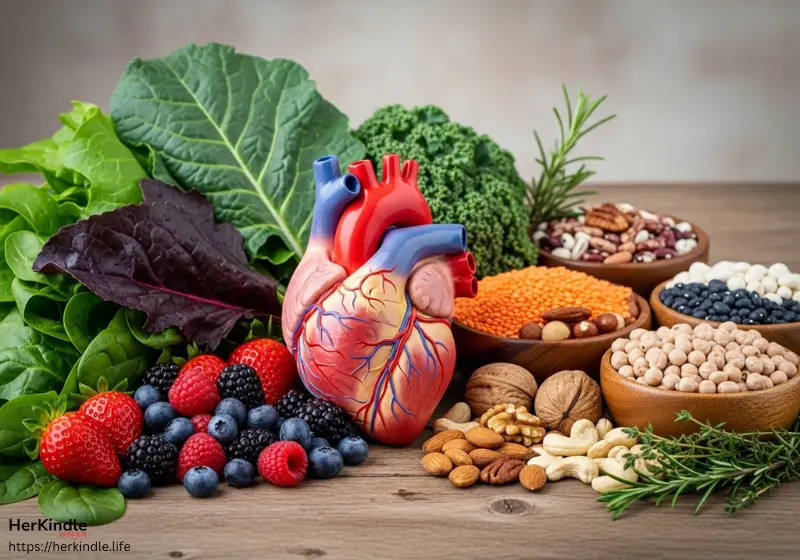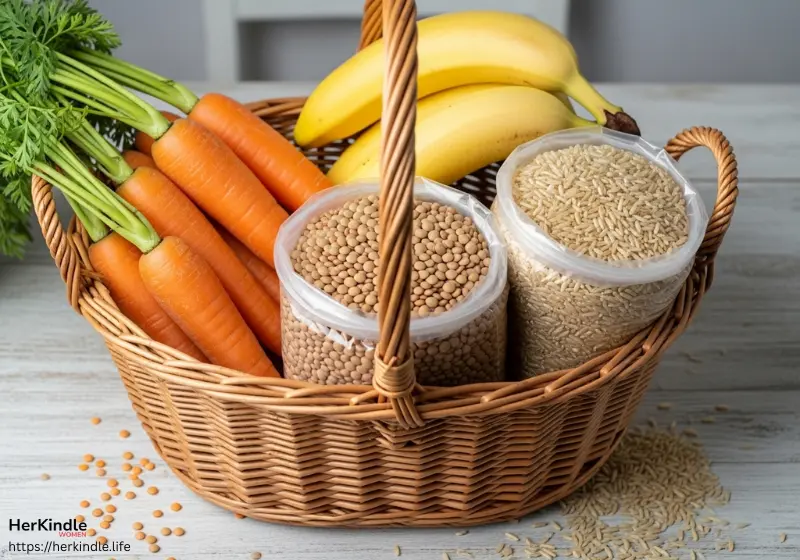As women, we often carry the weight of our families’ health on our shoulders. From grocery shopping to meal planning and managing our own wellbeing, our food choices ripple through generations. If you’re a wife, a mother, or both, there’s a powerful shift happening that you deserve to know about—the plant-based diet movement.
This guide is more than just another health trend. Backed by science, personal empowerment, and sustainability, adopting a plant-based lifestyle offers a gateway to vibrant health, longevity, and a future we can be proud to pass on to our children.
Whether you’re curious about meatless Mondays or ready to go fully vegan, this comprehensive guide will help you understand:
- What a plant-based diet really is
- How it impacts your body, family, and the planet
- How to nourish yourself with confidence
- Practical strategies tailored for your busy life
Let’s walk this journey together—with compassion, clarity, and purpose.
What is a Plant-Based Diet? Debunking the Myths
🌾 Beyond “Just Salads” – Defining Plant-Based Eating
A plant-based diet emphasizes foods that come from plants: vegetables, fruits, legumes, nuts, seeds, and whole grains. It may or may not exclude animal products entirely, offering flexibility based on personal goals.
There’s a spectrum:
- Vegan: 100% plant-based, no animal products at all
- Vegetarian: Includes dairy and/or eggs
- Flexitarian: Mostly plant-based with occasional animal products
- Pescatarian: Includes fish, no red or white meat
For many women, especially in North America, this flexibility makes the plant-based lifestyle sustainable—something we can adapt, not endure.
🍳 Misconceptions vs. Reality
- ❌ “I won’t get enough protein.”
✅ You can get ample protein from legumes, soy, nuts, seeds, and whole grains. - ❌ “It’s too expensive.”
✅ Staples like beans, oats, and lentils are among the most budget-friendly foods. - ❌ “It’s hard for families.”
✅ Many family favorites—like spaghetti, tacos, and chili—can be plant-powered!
Nutritional Benefits of a Plant-Based Diet
💪 Essential Nutrients for Women’s Health
Plant-based diets can meet all your nutritional needs—and even outperform the Standard American Diet in many areas. Here’s how:
- Iron: Found in lentils, tofu, spinach—paired with vitamin C, iron absorption increases.
- Calcium: Available from fortified plant milks, broccoli, and tofu.
- Vitamin B12: Best obtained via fortified foods or supplements (a must for vegans).
- Protein: Lentils, beans, quinoa, soy, and seeds provide full amino acid profiles when combined.
- Fiber: A powerful nutrient missing in most American diets, fiber supports digestion and hormonal balance.
Women following plant-based diets often consume more vitamins A, C, E, folate, and magnesium—all crucial for hormonal health and immunity.
🧠 Cognitive and Emotional Wellness
Plant-forward eating helps support:
- Brain function (via omega-3s from chia, flax, and walnuts)
- Mood regulation through stable blood sugar
- Hormonal health via reduced saturated fats and increased phytonutrients
Health Transformations: From Disease Prevention to Longevity
🩺 Chronic Disease Prevention
Plant-based diets are clinically linked to reduced risk of:
- Type 2 diabetes
- Cardiovascular disease
- Obesity
- Certain cancers (particularly colorectal and breast cancer)
The high fiber, low saturated fat nature of this lifestyle enhances metabolic health, lowers blood pressure, and reduces LDL (“bad”) cholesterol.
🌿 Anti-Inflammatory and Immune Boosting
Plant foods contain antioxidants and phytochemicals that:
- Reduce systemic inflammation
- Boost immunity (great for moms juggling everything!)
- Support faster recovery from illness

🧓 Longevity & Aging Gracefully
Populations with high plant-food consumption (like the “Blue Zones”) enjoy:
- Longer lifespans
- Lower rates of dementia and arthritis
- Better quality of life in later years
For women over 40, this is especially powerful.
Sustainability: Saving the Planet with Every Bite
As caretakers of the next generation, our food choices matter—not just for our bodies but for the planet.
🌎 Environmental Benefits of Plant-Based Living
Research confirms that plant-based diets:
- Cut greenhouse gas emissions by up to 52%
- Require up to 73% less water
- Use significantly less land, preserving biodiversity
Even eating plant-based just a few days a week helps reduce your family’s environmental footprint.
🛍 Conscious Consumption, Empowered Choices
Choosing lentils over lamb, tofu over chicken, oat milk over cow’s milk—these choices are no longer fringe. They’re mainstream, empowering, and deeply impactful.
Making It Work: Practical Strategies for Busy Women
🍽 Building Your Plate the Right Way
Each plant-powered meal should aim to include:
- Protein: Lentils, beans, tofu, tempeh, quinoa
- Healthy fats: Avocados, olive oil, nuts, seeds
- Complex carbs: Brown rice, whole wheat, oats
- Vegetables galore: Color = nutrients
Pro tip: Think “abundance,” not “restriction.”
🛒 Grocery Staples to Keep on Hand
- Canned beans and lentils
- Frozen fruits and vegetables
- Whole grain pasta and brown rice
- Plant-based milks (fortified with calcium & B12)
- Nut butters and seeds
👩👧👦 Making It Family-Friendly
- Swap meatballs with lentil or mushroom versions
- Use plant-based ground for tacos and chili
- Try oat milk in cereal or smoothies
- Let the kids pick a new veggie to try each week
Budget-Friendly and Time-Saving Tips
💰 Saving Money on a Plant-Based Diet
- Buy in bulk: oats, rice, beans
- Shop local and seasonal produce
- Freeze leftovers
- Make use of discount grocers or farmers markets

⏱ Quick Meal Ideas for Weeknights
- Chickpea stir-fry with rice
- Lentil soup with whole grain toast
- Hummus wraps with veggies
- Pasta with tomato sauce + sautéed spinach
Overcoming Barriers and Myths
💬 Social and Cultural Considerations
In many North American households, meals revolve around meat. But change doesn’t have to be dramatic. Start by:
- Educating family members gently
- Introducing new dishes gradually
- Focusing on shared values (health, sustainability, compassion)
🧠 Mental Shifts That Empower
- View it as a lifestyle upgrade, not a diet
- Celebrate progress, not perfection
- Surround yourself with support—online groups, books, blogs
FAQs: Plant-Based Diets for Women and Families
Q1: Can I get enough protein without meat?
Yes! Beans, lentils, tofu, tempeh, quinoa, and whole grains provide ample protein.
Q2: What about my kids—can they eat plant-based too?
Absolutely. With balanced planning, children can thrive on plant-based diets. Pediatric dietitians agree.
Q3: Is plant-based the same as vegan?
Not always. Veganism excludes all animal products. Plant-based can be flexible—aiming to focus on plant foods while minimizing animal intake.
Q4: How do I transition without feeling overwhelmed?
Start small: Try one plant-based meal a day or do meatless Mondays. Gradual changes lead to lasting results.
Q5: What supplements should I consider?
Most important: Vitamin B12. Also consider Vitamin D, omega-3 (from algae), and possibly iron depending on your needs.
Final Thoughts: A Movement Rooted in Compassion and Strength
Choosing a plant-based lifestyle is not just about food—it’s about legacy. As women shaping homes and habits, our choices matter. With every nourishing meal, you’re teaching your children resilience, wellness, and love—for themselves, others, and the Earth.
From your kitchen to your community, your shift toward plant-based living is a quiet revolution.
And it starts with just one meal.







